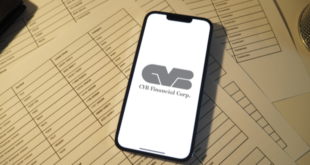Wells Fargo has been ordered to pay $3.7 billion in fines for violations regarding several of its most profitable product lines.
The penalties, levied by the U.S. Consumer Financial Protection Bureau, involve illegal fees and interest charges on automobile and mortgage loans, according to a statement released by the protection bureau.
The San Francisco-based financial giant, which reportedly earned nearly $80 billion in revenue last year, also charged consumers illegal surprise overdraft fees and applied other unlawful charges to checking and savings accounts.
“The bank’s illegal conduct led to billions of dollars in financial harm to its customers and, for thousands of customers, the loss of their vehicles and homes,” the statement reads.
The bank will pay $2 billion to make good on an estimated 16 million consumer accounts, and a $1.7 billion fine that will go into the protection bureau’s civil penalty fund. That money will be used to provide relief to victims of consumer financial law violations.
“Wells Fargo’s rinse-repeat cycle of violating the law has harmed millions of American families,” said Rohit Chopra, protection bureau director, in the statement. “The CFPB is ordering Wells Fargo to refund billions of dollars to consumers across the country.
“This is an important step for accountability, and long-term reform of this repeat offender.”
Besides the auto loan and home mortgage offense, Well Fargo engaged in the false servicing of student loans the setting up of fake accounts, according to the statement.
Charles Scharf, Wells Fargo’s chief executive officer, said the bank – which has a history of clashing with government regulators during its 170 years in operation – has been working for some time to clean up its “unacceptable practices” wherever needed.
“As we have said before, we and our regulators have identified a series of unacceptable practices that we have been working systematically to change and provide customer remediation where warranted,” Scharf said in a statement. “This far-reaching agreement is an important milestone in our work to transform the operating practices at Wells Fargo and to put these issues behind us,”
 IE Business Daily Business news for the Inland Empire.
IE Business Daily Business news for the Inland Empire.


